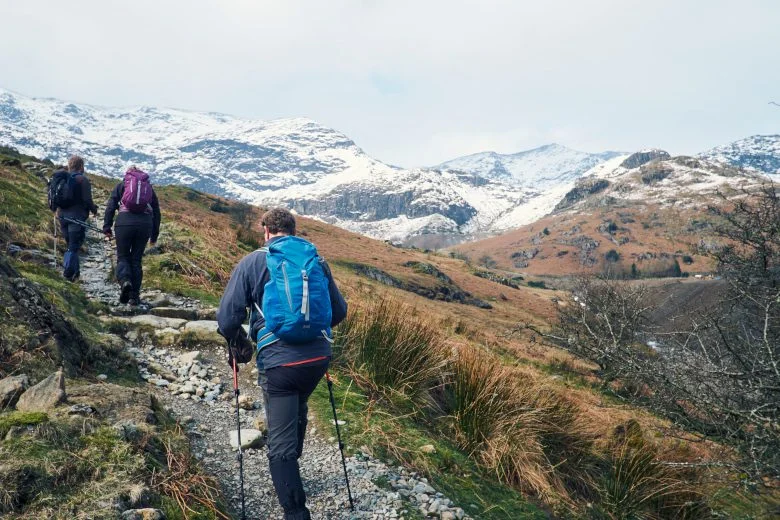The Origin and Essence of Mountaineering
The origin of mountaineering can be traced back to 18th - century Europe. It is characterized by climbing high - altitude mountains and facing unique challenges. The essence of mountaineering lies in self - determination, endurance, and the spirit of exploration.
People who engage in this sport are called mountaineers. They strive to reach the summit and have a deep respect for the nature and history of these regions.
Preparation for this Sport: Equipment and Training
The key to dealing with extreme conditions in mountaineering is to use specialized tools and clothing. Crampons, ice axes, helmets, and ropes are the basic elements to ensure the safety of mountaineers. Similarly, waterproof clothing, wind - proof and warm layers to resist low temperatures are of great importance.
Likewise, the equipment must be lightweight and of high quality because mountaineers carry everything they need during the ascent. Modern technology has led to significant advancements in materials and design, enabling practitioners of this discipline to carry essential items more easily without sacrificing functionality or safety.

The Art of Mountain Climbing
Mountaineering is defined by the ascent of mountains. However, it is not limited to this. In fact, it is a sport that encompasses a wide range of techniques and skills. Climbing on rocks and ice, using crampons and ice axes, and navigating in adverse weather conditions are just some of the skills that mountaineers must master.
In addition, the practice of mountaineering involves unique challenges, such as dealing with steep terrain, overcoming crevasses, and adapting to unpredictable weather changes. Therefore, careful route planning and resource management are crucial for successfully reaching the desired peak.
If you like high - altitude sports, you may also be interested in: Sport climbing: a very rewarding discipline.
Who can practice mountaineering?
Mountaineering is a discipline without discrimination. In fact, it is open to all those who have the will and courage to challenge heights. From beginners to experts, anyone who is physically fit and willing to learn can embark on this exciting journey.
The diversity of the mountaineering community is wonderful. Many people even find this activity a unique way to overcome fears, build confidence, and establish deep connections with other adventurers.
The Importance of Ethics in this Discipline
In the mountaineering community, ethics is a fundamental pillar. Respecting the natural environment and local residents is a top priority, and many mountaineers strive to leave the mountains as they found them.
Meet the appropriate nutrition of mountaineers.
Safety is another important aspect; responsible decision - making and the ability to abandon a climb in dangerous situations are part of mountaineering ethics.
What is the best time to practice mountaineering?
Choosing the right time to practice mountaineering depends largely on the geographical location of the mountain and the climatic conditions. Intermediate seasons such as spring and autumn are usually preferred because the temperatures are moderate and the weather conditions are more stable.
In some regions, winter brings unique challenges, such as ice climbing, while summer is conducive to climbing in low - altitude areas. Careful planning, weather observation, and flexibility are the keys to making the most of each season.
Mountaineering Risks: Challenges Posed by Altitude
Although emotions drive mountaineering, the existence of significant risks cannot be ignored. Extreme weather conditions, the possibility of avalanches, hypoxia at high altitudes, and difficulties in evacuation in case of emergencies are just some of the challenges that mountaineers face.
Proper training, knowledge of rescue techniques, and respect for natural conditions are essential for minimizing risks. Self - awareness and the ability to make informed decisions in critical situations are important characteristics of any mountaineer.
Benefits of Practicing Mountaineering
Mountaineering is not just a strenuous physical test. In fact, it is considered a rich experience that can bring benefits to individuals. Moreover, overcoming physical and mental challenges can enhance self - confidence and resilience. The direct contact with nature and the sense of accomplishment when reaching the summit, the rich experience will remain in memory forever.
In addition, mountaineering promotes camaraderie and teamwork. This is because mountaineers rely on each other to overcome obstacles. The sense of community in the mountains is unique and helps to form lasting connections among people who share this passion.
What is the Future of Mountaineering?
As the sport becomes more and more popular, it is crucial to maintain a balance between the enthusiasm for extreme challenges and the protection of mountain ecosystems.
This modern discipline must embrace sustainable and ethical practices to ensure that future generations can enjoy these natural wonders.
The answer to the question of what mountaineering is, is that it is not just an extreme sport. It is an adventure that challenges physical and mental limits. And an opportunity to explore the most remote corners of the earth.
With proper preparation and a deep respect for nature, mountaineers continue to inspire others to conquer the highest peaks. At the same time, protecting our precious natural environment.





